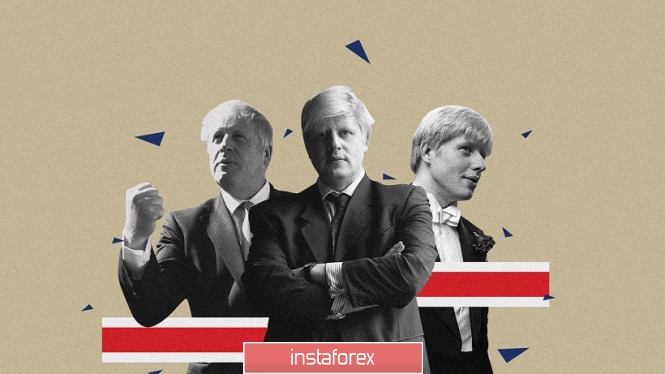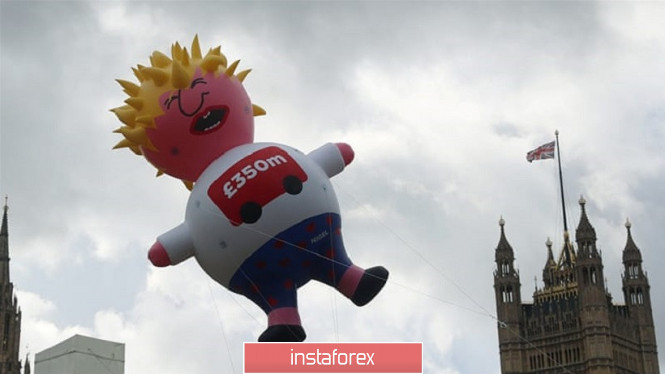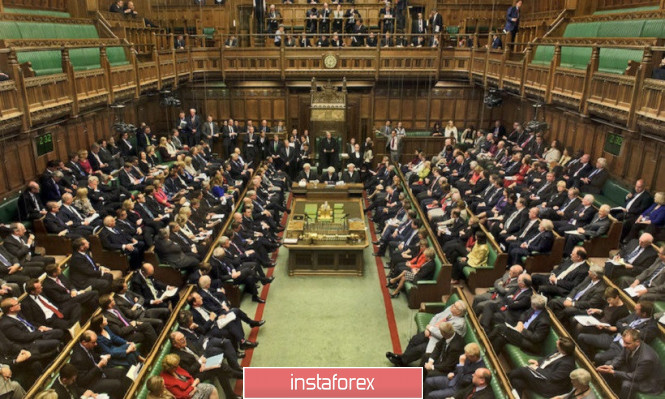So, the political struggle in Britain reached the final stage: a large-scale voting among 160 thousand "ordinary" Conservatives ended tonight, tomorrow we will know the name of the new leader of the Conservative Party, and the day after tomorrow - he will begin his duties as prime minister of the country. However, there is no intrigue here: throughout the entire period of the election race, Boris Johnson was an obvious and inaccessible favorite - even numerous scandals and protests could not significantly lower his rating. Therefore, today we can confidently say that the odious ex-foreign minister will be the new owner of the office in Downing Street.
The inevitability of this fact is also indicated by the beginning resignations of the ministers of the Theresa May government. In particular, the representative of the British Foreign Ministry, Alan Duncan, said that he would not work in Johnson's cabinet. Similar statements were made by other ministers (in particular, justice, finance), only in a hypothetical context. Johnson himself, in his turn, has already managed to "fire" his opponent Jeremy Hunt, who today is still the Minister of Foreign Affairs.

Obviously, when Johnson's victory becomes a legal fact, many (overwhelmingly) government members will also leave their posts. Growing political uncertainty in any conditions puts pressure on the national currency. However, in this case, the uncertain prospects of Johnson's political relationship (with both the government members and the House of Commons deputies) will be multiplied by the uncertainty about Brexit's prospects. Although traders have already managed to "accept" the victory of the ex-minister of foreign affairs, his harsh remarks about Brussels, expressed in the role of the prime minister, will put additional pressure on the pound.
In general, the game against the pound has been a win-win character for several months. Even if the GBP/USD pair showed large-scale growth (to be more precise, a large-scale correction), bears have subsequently not only returned the price to their previous positions, but also "captured" new price horizons, thus consolidating a new (two-year) low - 1.2385. Now a regular price pullback followed, but the trend, as it was downward, remained so - and the factors putting pressure on the pound, in the near future will only increase their influence.
Also, the pound ignored the promises of Boris Johnson that he would conclude a free trade agreement with the European Union. In his opinion, a compromise between London and Brussels is possible and necessary - and a common denominator can be reached within the framework of a free trade agreement, which he intends to negotiate after the British leaves the EU. He also called the problem of border control between Ireland and Northern Ireland "the only problem in the way of the Brexit deal." He also promised to look into this issue - but again, in the context of his understanding of the "compromise".
In other words, Johnson demonstrates his "contractual capacity", however, the ideas declared by him are unlikely to be realized, given the rather rigid position of Brussels. Therefore, the market ignored such seemingly friendly rhetoric.

In general, according to most analysts, the first political decisions of Johnson will be made in respect of members of the House of Commons. Considering the results of the previous polls, the British Parliament is unlikely to be led by the new prime minister and will support the "hard" Brexit. Not only Labour, but many Conservatives are against this scenario and Johnson is well aware. Therefore, in order for his scenario to be realized, he will first need to enlist the support of the deputies' corps - and, most likely, no longer of the current convocation. Thus, according to The Times, Johnson plans to hold early Parliamentary elections in the near future in order to implement all of his legislative initiatives that accompany the "hard" Brexit (primarily in the tax field). True, according to other information, the deputies plan to prevent this - Johnson can take a vote of no confidence almost during the first months of his term in power. Especially if he tries to withdraw the country from the European Union without a deal on October 31. According to anonymous sources in the British press, the Labour Party initiates a Parliamentary vote on this issue at the end of the summer, and it will be supported by Conservatives from among the "centrists".
Here it is worth noting that last Thursday the House of Commons had already adopted an amendment that is intended to complicate Johnson's ability to terminate the activities of Parliament, in order to bypass the deputies to withdraw Britain from the Alliance without a deal. The MPs supported the Benn-Burt amendment, the essence of which is as follows: even if the work of the House of Commons is terminated, deputies can still hold meetings for five days, in particular, to consider the work of the Irish parliament. This amendment alone will not be able to stop the chaotic Brexit, but it will provide MPs with a temporary gap to pass laws that de jure and de facto block the country's exit from the EU without a deal.

All this suggests that the main political battles involving Johnson will unfold in the first place not in Brussels, but in London, where the British Parliament will become the "battlefield". And although in the end, deputies can save the country from a hard Brexit, the very fact of political confrontation will put a lot of pressure on the pound. That is why a further game against the British has a practical meaning: paired with the dollar, the pound retains the potential to decline to the support level of 1.2380 (the bottom line of the Bollinger Bands indicator on the daily chart). This target pair can test in the coming days, against the background of Johnson's first statements in the role of the British prime minister.
The material has been provided by InstaForex Company - www.instaforex.com